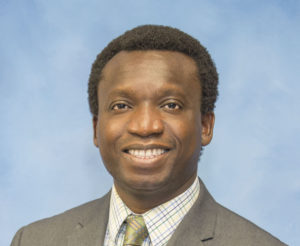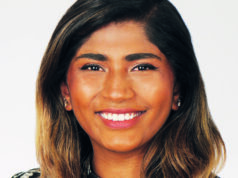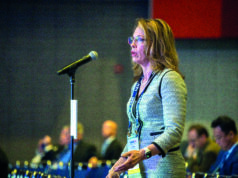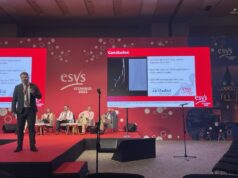
I recently took the Registered Physician in Vascular Interpretation (RPVI) exam. While studying for it, one of the concepts that stood out was the signal-to-noise ratio (SNR) in vascular ultrasound, and how it accounted for the quality of images. Don’t worry. I have no intention of putting up the Doppler equation in this month’s write-up. It’s just that for those of us in the trenches of surgical training, this concept of SNR is very relatable.
No one doubts that the long road to becoming competent, confident and compassionate surgeons requires constant evaluation and re-evaluation during training. At any given time as trainees, however, there are multiple voices in our ear and in our heads. We’ve all gotten that feedback or evaluations that leaves us overwhelmed and/or is contradictory.
So, how do we begin to decipher what’s important?
The patient comes first
Perhaps we should start where any great surgeon starts—with the patient in front of us. There is no greater litmus test about how we’re doing in training than to know that our clinical decisions are providing the right care for the right patient at the right time. Do I have a knowledge or skillset deficit that puts patients at risk of harm? Then, that needs to be remedied. Does an evaluation point out a blindspot that is potentially harmful to patient care? Then that evaluation needs to be taken seriously, and that blindspot fixed. Providing appropriate care for our patients is the most important signal—even if it means that doing so, sometimes, can generate a lot of noise.
The transducer
The RPVI exam impressed upon me the importance of the transducer properties in improving SNR. In training, this is akin to having the right mentors whose opinion you genuinely respect. We all have surgeons that we’d like to emulate our practice after training. Seek out these people after working with them on various rotations and ask for honest feedback. For me, these surgeons help me determine what’s working and what’s not.
But if I’m being really honest, sometimes the best feedback comes from the non-surgeons in our professional lives—from the operating room nurses who see our efforts and have direct comparison to how everyone else they have trained has done, to the administrative staff who have access to my CV. I have personally found these people to be some of our strongest allies in helping cross the finish line in training. For the most part, they all want us to genuinely succeed.
And of course, one cannot forget a most important set of people—the loved ones in your personal life. From parents, friends, spouses to kids, these people provide grounding to reality. While they may not always have medical advice to proffer, their evaluation and advice can help us become a more compassionate person—and they are often adept at recognizing burnout before you do.
Internal reflection
Last, but most importantly, is you and your goals. Introspection is key to goal alignment in training. This gets at the concept of meaningful work. What are your personal and professional goals for training? Sure we all want to become excellent surgeons, but are there nuances unique to you and your situation? Perhaps seeking opportunities that get you to that goal while letting go of ones that are a waste of time, will allow for a more meaningful and fulfilling experience that will translate into more competence and confidence in training. There is no surefire answer here but learning to define appropriate boundaries that align with your ambitions and goals, can be a good place to start.
In training, there are a lot of voices—including your own. This month, as we barrel towards the end of the calendar year, I hope that your SNR remains high so that the image of who you’re becoming as a surgeon remains crisp and aligned with the image of whom you want to become.
Christopher Audu, MD, is a vascular surgery resident at the University of Michigan in Ann Arbor, Michigan, and the Vascular Specialist resident/fellow editor.












